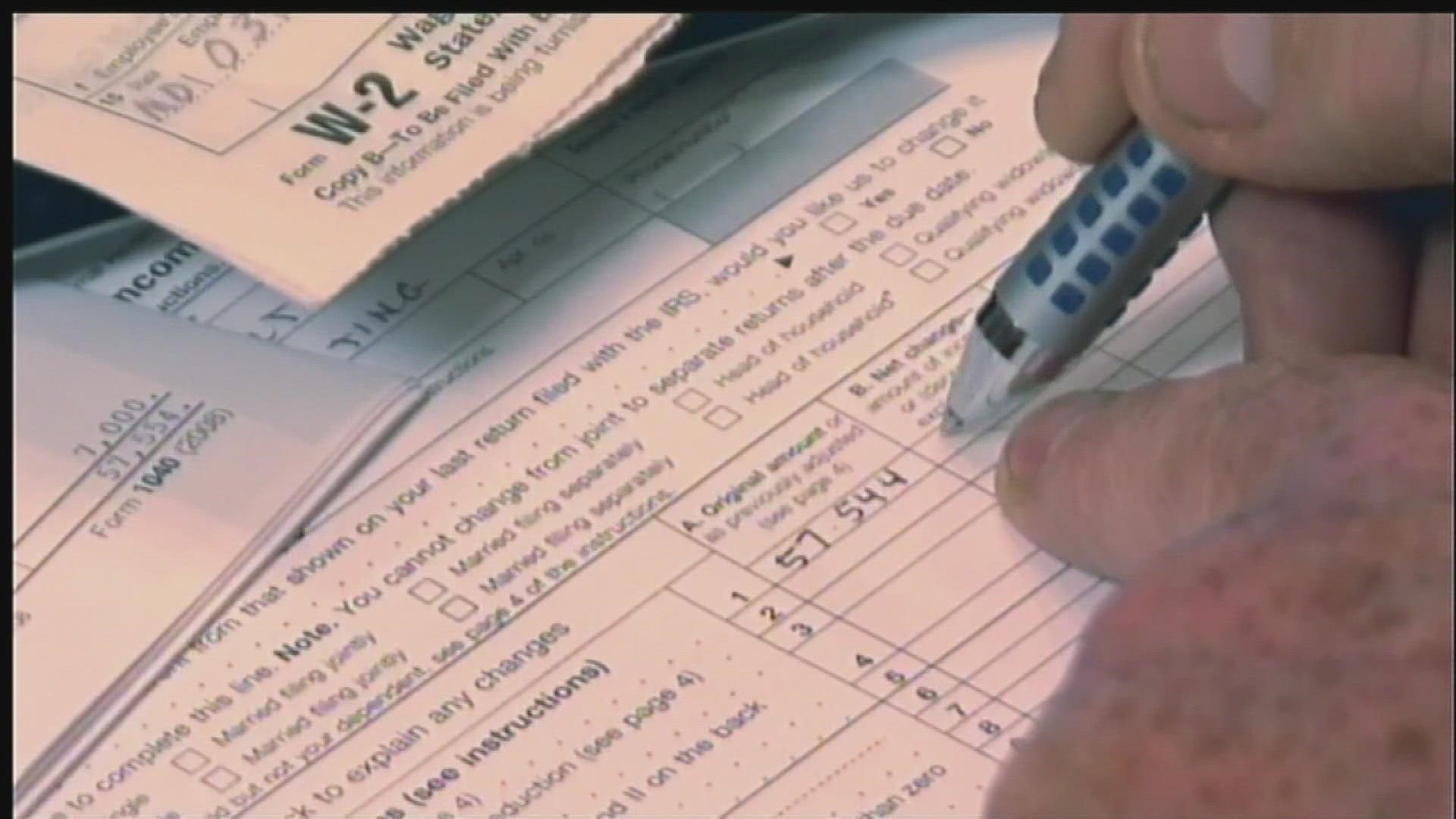ATLANTA — A new change at the IRS could put more money in your pocket next year. Thanks to inflation adjustments to 2023 federal income tax brackets, more of your wages earned next calendar year may be subject to lower tax rates than they were in 2022.
"These changes mean how much more money you can earn, by paying less in taxes," tax accountant Andrew Poulos explained.
These changes are for 2023, so it will be counted on the return you file in 2024. There's no impact on your 2022 tax return.
“This is all going to be automatic," said Poulos.
Not only have there been adjustments to the brackets, but the standard deduction is changing as well.
"A married couple will increase their standard deduction to by $1,800 to $27,700," he said. "And single taxpayers will get a $900 increase in the standard deduction to $13,850.”
Here's how it works. The IRS increased all tax brackets by roughly 7%. You need to earn roughly 7% more to get into each of the higher tax brackets. If you don't get a 7% raise in 2023, this could help you pay less taxes on the same amount of income.
Here are two hypothetical examples:
Let’s say you make $57,000 per year as a single person taking the standard deduction. Right now the highest part of your income is taxed at 22% in 2022. If you didn’t get a raise in 2023, the highest part of your income would only be taxed at a 12% rate and you could save roughly $300 in federal taxes.
Let’s say you’re a married couple making $115,000 per year with the standard deduction. Right now the highest part of your income is also taxed at 22% in 2022. If you make the same in 2023, the highest part of your income would only be taxed at a 12% rate and as a couple you could save roughly $600 in federal taxes.
Keep in mind everyone’s tax situation is different and this may vary slightly (deductions, write offs, etc).
Because it's unknown how inflation will play out in the next year, Poulos advised people will still need to be careful with spending, even with the extra savings.
“I can certainly bet you that you're going to be spending more next year due to inflation," he said. "So you got to be mindful, manage your money, try to have some savings for a rainy day because we just still don't know how long it's going to take the Fed (Federal Reserve) to get inflation under control.”
In 2023, you will be allowed to contribute more to a flexible spending account, up to $3,050. This could reduce the amount of tax taken out of your paycheck.
Also, the Earned Income Tax Credit (EITC) allows low-income workers to keep more of their paycheck, with the IRS raising the maximum amounts one can claim for the EITC by about 7%.
Here's a full breakdown of the new tax brackets:
- 10% applies to the first $11,000 of income for single filers ($22,000 for married couples filing jointly).
- 12% applies to income over $11,000 ($22,000 for joint filers)
- 22% applies to income over $44,725 ($89,450 for joint filers)
- 24% applies to incomes over $95,375 ($190,750 for joint filers)
- 32% applies to incomes over $182,100 ($364,200 for joint filers)
- 37% applies to incomes over $578,125 ($693,750 for joint filers)

